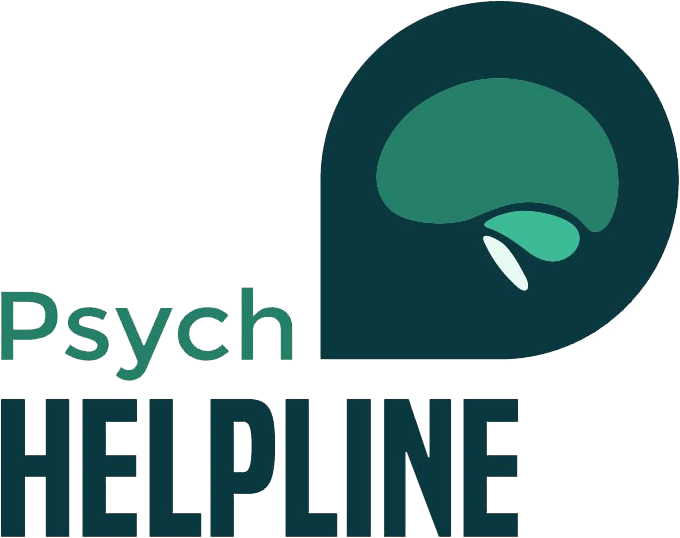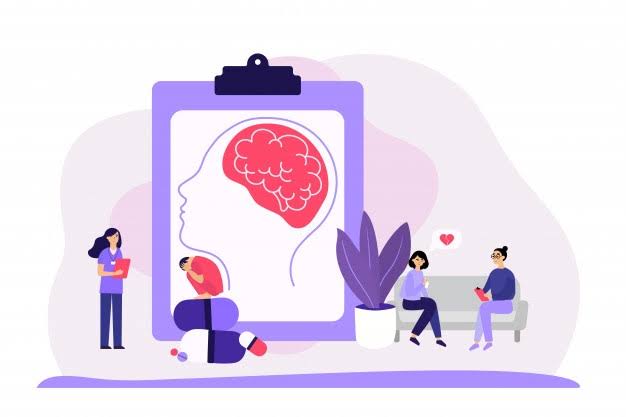Table of Contents
A romantic relationship or a matrimonial bond can greatly benefit from couples therapy under dire circumstances. Maintaining a relationship among two individuals undoubtedly requires years of endless effort and sacrifices. Yet, sometimes even these utmost efforts on both ends don’t suffice and the need to seek couples therapy starts arising.
Undoubtedly, couples therapy has the ability to act like a lifeboat saving you from the stinking mess of your deteriorating relationship. Over the years the stigma around seeking professional help or therapy has successfully worn off in our society but there are still so many things the masses remain unaware of. So, if you wish to know the do’s and dont’s of Couples Therapy or if it actually has the potential to save a relationship, we’re here to help.
8 Signs You Should Seek Therapy
- Repetitively arguments with your partner about a particular topic
- Boredom or numbness about your relationship
- Experiencing lack of time or affection from your partner
- Facing difficulties during transition from couple hood to parenthood
- Feeling skeptical about your breakup or seeking divorce
- To deal with the trauma of any kind
- Codependency or excessive reliance on your partner
- Unsatisfactory sexual practicing
What To Expect From A Professional Therapist
Regardless of what the nature of conflict is, a professional couples therapist can always utilize various practical strategies to put an end to repetitive negative patterns. During a therapy session, a therapist has multiple errands at hands and the successful completion of these errands can directly impact the end results of a session. Some of these tasks include.
- Improving communication between the couple: Often times one person in a relationship may feel as if their opinion on things remains unheard. If this particular behavior turns into a regular pattern a couple might start fighting more often leading up to the slow deterioration of their relationship. A professional therapist ensures that each person gets a chance to speak their mind during a session. Consequently, couples end up communicating the things that usually remain unheard deep inside a corner of their heart.
- Identification of repetitive negative patterns: It’s a therapist’s task to hear both sides of the coin and then point out the exact negative catalyst that seems to be the root cause of a problem. For Instance; a couple often quarrels about the same topic or item in a cyclical manner and a couples therapist can raise the existence of this repetitive cycle during a session with the couple. In this manner, couples will start looking at that particular negative catalyst in a new light offering them a chance to reconcile.
- Assistance in maintaining long-lost intimacy: Once a relationship leaves the honeymoon phase the lack of intimacy becomes a common occurrence. Hence, this period is of utmost importance as it determines the course of that particular relationship. A professional therapist can indulge a couple in regular communications about the things that stand in the way of intimacy. Furthermore, a couples therapist can recommend ways to spark up the romance plug once again and go over things that seem to work for the couple before.
- Development of realistic and practical solutions: The whole point behind a therapy session is to extract a conclusion and a solution to the problem. A professional therapist first carefully listens to each individual’s narrative and then suggests multiple ways to tackle those issues.
- Maintenance of confidentiality and confidence build-up: Couples are often wary of seeking outside help and rather sulk around fearing lack of confidentiality. Hence, it’s a professional’s job to provide them with utmost confidentiality so they can start trusting them. Some couples avoid discussing the reason behind a conflict more expressively as it might be something embarrassing like; an illicit affair, difficulties around sex etc. Building trust between the client and the therapist is high-key significant because couples usually fail to open up on sensitive topics. Furthermore, under no circumstances must the therapist risk the confidentiality of a therapy session in front of anyone else.
The most common kinds of Couples Therapies

The kind of therapeutic treatment your counselors use is in accordance to your needs and what they actively practice. Commonly there are three most widely established approaches used during couples counseling. These 3 approaches are;
- Gottman Method
- Emotionally Focused Therapy (or EFT)
- Imago Relationship Therapy
Apart from these three therapeutic approaches professional practitioners also rely on multiple ways to secure positive results such as; hypnosis, sex therapy, Freudian introspection, etc. Currently, dialogue-based Imago Therapy’s been making ways in the world of psychology due to the positive results it commonly brings forth. This method works by engaging both partners in conversation during the course of the conflict.
During this conversation, a partner must continue repeating what the other partner’s saying back to them and it helps in making the other partner feel as if they’re getting understood. It’s essential that before starting a session you ask your therapist whether they specialize in a particular kind of therapy. Consequently, you’ll be able to read about that particular practice and learn more even before you start going through it..
Is Couples Therapy Always Successful?

The extent of success in the case of couples therapy is quite unpredictable at the start. That’s because the status of success in couples therapy is entirely reliant upon the couple and each individual’s willingness to change or work on their relationship. Sometimes a person only agrees to go through therapy just to please their partner and the entire session brings forth zero results. So, if you actually want couples therapy to work in your favor then firstly find out whether your partner is actually willing to become a part of it or not. According to the American Psychological Association;
“About 75 percent of couples who opt for therapy say it improves their relationships.”
Furthermore, solely relying on an hour-long session with a therapist isn’t enough couples must practice the things they learn during their regular routine as well. Some couple attends year-long regular sessions with a therapist yet, in the end, their relationship fails to succeed. That’s because couples fail to stay invested in the process during their regular routine by not practicing the skills regularly.
Another common occurrence is how couples engaging in couples therapy succeed at achieving the desire results for the time being but after leaving it suddenly falls back into the old negative patterns. If an individual isn’t willing to open up to a therapist and actually share their in-depth feelings out of shyness or embarrassment then forcing them can actually make things much worse than before.
Professionals suggest that only a few sessions aren’t sometimes enough to save a relationship but there’s a fair share of cases that prove the positive role therapy can play in an almost-failed relationship. Lastly, not every couple is meant to stay together so the lack of success through couples therapy may help them realize that their relationship has run its course, it’s time to part.
The Ideal Time Frame For Couples Therapy
Some couples seek therapy for much more severe issues and others only want support to discuss one specific yet complex conversation. So, the time couples spend in therapy is completely reliant on the severity of a situation and the time they take to start investing in newly learned habits.
As we all know building new habits can take time and that time varies from a person to person, there isn’t a fixed time frame for couples therapy. If a person starts getting frustrated about positive results right after three or more sessions it’s never going to work out. Apart from the couple, their therapist also requires time to resolve their issues, analyze analogies and come to a conclusion. Hence only a couple’s requirements and interpersonal dynamics can decide the time couples therapy can take.
Effective Pointers To Improve A Relationship

Some couples are a bit more conservative when it comes to seeking foreign help. Hence, either both or one of the partners could be unwilling to seek couples therapy. In this case, there are few habits each individual can adapt to rejuvenate their relationship. You can also practice these positive habits with your regular couples therapy sessions for better results.
- The creation of a safe space: Notice whether you or your partner are communicating in a manner that can be offensive to the other one. When it comes to maintaining conversations and opening up creating a safe space is highly essential. Consequently, your partner will feel much safer to talk and share what he actually feels.
- Keep your private matters private: Discussing private conversations can inflict a sense of shame and mistrust in your partner. In this way, they avoid sharing what they feel with you fearing chances of mistrust all over again. This particular factor can lead to bigger issues in the long run.
- Learn how to communicate without acting defensive: Avoid jumping to conclusions while arguing over a topic. Instead, you should provide your partner with a chance to share. Furthermore, avoid making any threats or demands while you’re both seem to be on bad terms.
- Respect each other’s boundaries; Refrain from crossing each other’s personal boundaries as it’s a huge deal-breaker. Any sort of codependent practice can inflict long-term damage on a relationship.
- Abandon scorekeeping; Usually, during arguments, people have a habit of bringing up events from the past.. A relationship is built on respect and should never be turned into a game to be won. So, when you feel the need to bring forth something like that, catch yourself in the act and move on.
- Pay attention to yourself: If an individual doesn’t feel good on their own then they can never bring something positive into a relationship. Make sure that you’re tackling your individual issues and not spilling your own frustrations over your partner. For instance; anger issues, work-related anxiety, etc.
FAQs
How to prepare for the first couples therapy session?
Prior to the first session get a hold of your therapist to inquire about the fee and whether they take insurance or not. Couples therapy is a bit more expensive than individual therapy so it’s favorable if one settles these things out before the actual sessions begin. Furthermore, before starting therapy make sure your therapist is licensed and well reputable in your area. A couple must also hold a conversation to set the goals they want to fulfill through therapy sessions and to discuss the willingness they both have to go into therapy.
Do therapists see partners individually during couples therapy?
This is a particularly common clinical decision a therapist has to make in order to decide how things can work much more smoothly. So, it’s fair to say there’s no hard and fast rule to determine the course of a session. Some therapists feel as if things can work in a better way once both partners are separated and an equal amount of time is spent focusing on both. There’s no need to be scared that your therapist might judge you on the basis of what your partner shared with them as its the job of your therapist to judge you based on entirely what you say.
Can your therapist suggest a breakup or a divorce?
The foundation of couples therapy is built on working things out until you can. A lot of clients try to skip over seeking help as they’re nervous to hear what they don’t want to hear from someone else. So, don’t be scared as it’s entirely against the ethical practice or conscience of a professional couples therapist to suggest separation. It’s a decision a person has to make on their own accord without any form of forcing on their therapist’s end. Regardless of what’s the status of a relationship or, a marriage is a therapist will always keep their opinion about it to themselves.
What’s the difference between couples therapy and couples counseling?
Marriage counseling is more focused on dealing with issues of the present day and current events. So, by seeking counseling a couple can focus on the challenges their marriage faces on the “now”. Meanwhile, couples therapy targets present-day issues as well as some historically significant events that create unhealthy patterns among two individuals.
What are common reasons behind not seeking couples therapy?
One of the many reasons behind treating couples therapy as taboo is being embarrassed or very shy. Sometimes a partner is much more willing to keep the relationship mojo alive than the other one hence the other partner stays weary of working it all out. Furthermore, a partner might also be scared of dealing with the interpersonal trauma a conversation on your marriage can bring forth and trigger them.
Final Thoughts
Although seeking Couples therapy may sound a bit too extraordinary and dramatic to some people it’s an essential step towards the rehabilitation of a relationship. If a partner is willing to seek couples therapy instead of completely abandoning the relationship it’s a sign of their willingness to save what you both have. Furthermore, you must first dedicate a great amount of time to finding a therapist that’s qualified enough, whose schedule goes hand in hand with yours.
Some couples might also have gender-based or cultural-based preferences and it’s essential to go over these factors before selecting a therapist you want to open up to. Lastly, couples must set a few goals for the starting sessions and the initial completion of those goals will give you the extent of progress you’re making in your relationship. Just remember even the least amount of progress is still progress!







